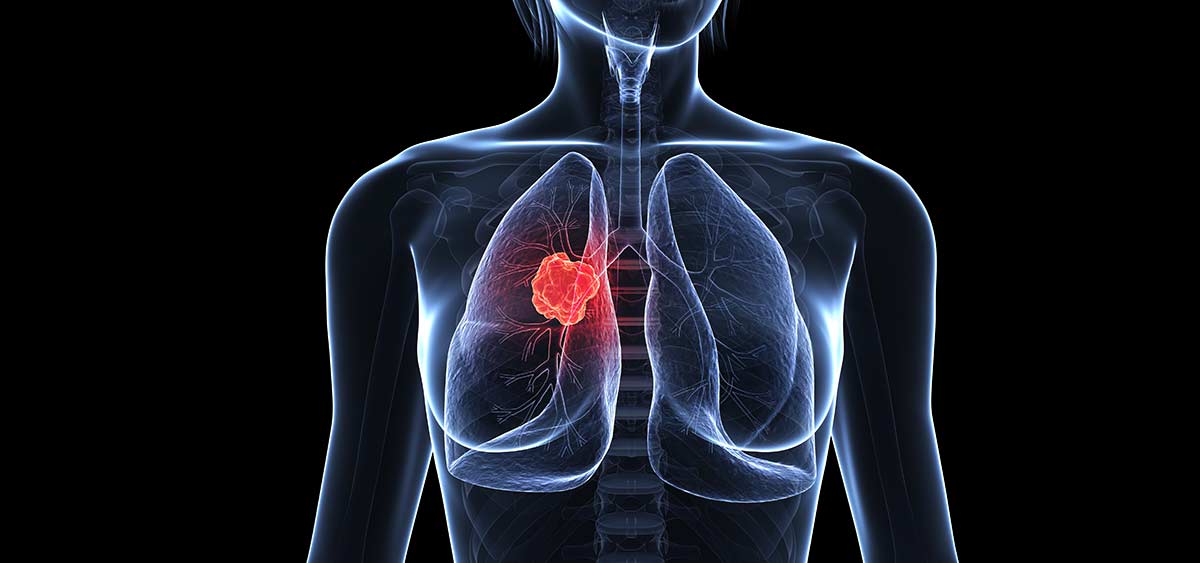The information presented in Oncology News Connection (ONC) eNewsletter is provided for physicians and other healthcare providers only and should not be shared with any current or future patients. If you are not a healthcare provider, we welcome you to sign up for Thrive eNewsletter to receive the latest information and blog highlights from Fox Chase Cancer Center.
New Trial Enrolls Never Smokers and Individuals with EGFR Driver Mutations

About 20 percent of people with lung cancer have never smoked (defined as having smoked <100 cigarettes in a lifetime), and about 45,000 never smokers are diagnosed with lung cancer (typically non-small cell lung cancer) each year in the United States.
“Never smokers with non-small cell lung cancer (NSCLC) are a unique population. They typically have different molecular profiles from that of smokers—50 percent have EGFR driver mutations,” said Joseph Treat, MD, a medical oncologist specializing in lung cancer treatment at Fox Chase Cancer Center. “This has major therapeutic implications for the efficacy of immunotherapy.”
Early immunotherapy trials for NSCLC found it was not an effective treatment option for patients with EGFR driver mutations and, because of this, subsequent trials often excluded patients with this mutation (leaving many never smokers out of immunotherapy trials).
To further evaluate the use of immunotherapy for these patients with NSCLC, Treat is serving as a primary investigator in a nationwide Phase II, double-arm, randomized clinical trial of treatment-naïve never smokers without the EGFR driver mutation and individuals with EGFR driver mutations for whom standard-of-care therapy with tyrosine kinase inhibitors have failed. The study’s therapy includes the immunotherapy agent, atezolizumab, in combination with the anti-angiogenic agent, bevacizumab, and platinum-doublet chemotherapy therapy (carboplatin and pemetrexed).
Along with their involvement in this study, Treat and his Fox Chase colleagues also perform translational research focused on this population.
Researchers Margie Clapper, PhD, and J. Nicholas Bodor, MD, PhD, of Fox Chase are currently working to understand why never smoker NSCLC is more prevalent in women. Previously, Clapper’s group discovered that the lung metabolizes estrogen into carcinogenic metabolites, and that women have higher levels of these metabolites than men. The group has also discovered higher estrogen metabolite levels in the urine of Asian women, in whom EGFR-mutated lung cancers are even more common.
“The comprehensive approach of management, clinical and translational research at Fox Chase signals a shift towards improved care and treatment options for these patients,” said Treat.
Things to Know About NSCLC in Never Smokers and Individuals with EGFR Driver Mutations
- Never smokers with NSCLC are a unique group of patients with specific therapeutic challenges—many are women and have EGFR driver mutations.
- While previous immunotherapy trials often excluded individuals with EGFR driver mutations, new trials are underway to evaluate the use of immunotherapy in this subpopulation of NSCLC patients.
- A nationwide Phase II, double-arm, randomized clinical trial of treatment-naïve never smokers without the EGFR driver mutation and individuals with EGFR driver mutations is now enrolling. The study’s therapy includes the immunotherapy agent, atezolizumab, in combination with the anti-angiogenic agent, bevacizumab, and platinum-doublet chemotherapy (carboplatin and pemetrexed).
